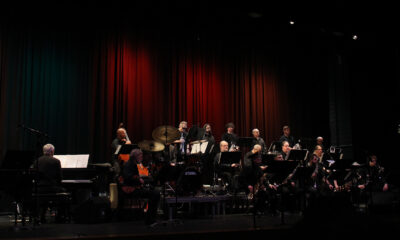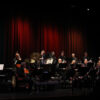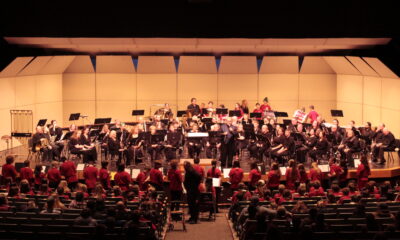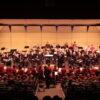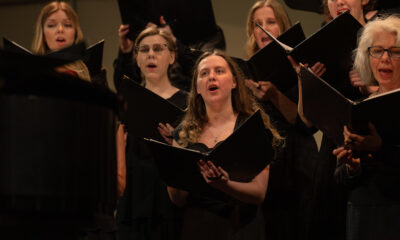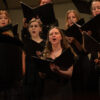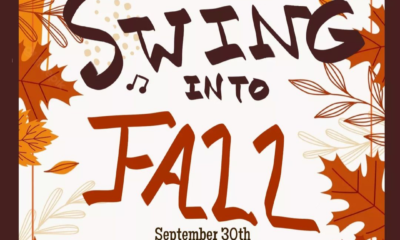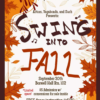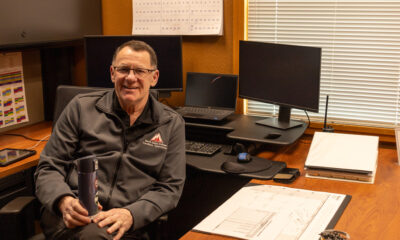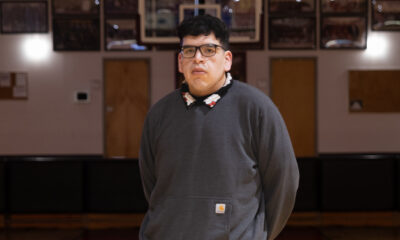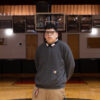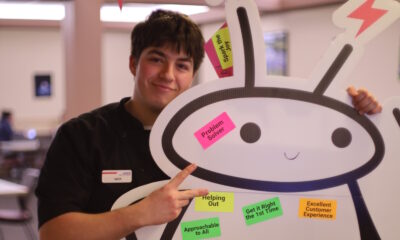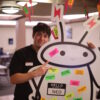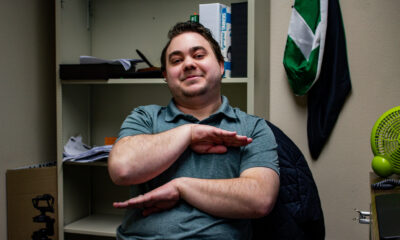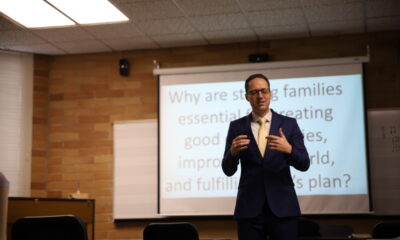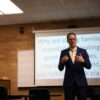Where there’s a will, there’s a way. That’s what the music community at NIC figured out this semester.
In a time where COVID-19 has impacted so many areas of life, NIC’s music department has done its best to keep their love of music alive while staying safe this semester.

Byran Hannaford, a music professor at NIC, wrote a proposal to the Dean of General Studies to get approval to change his classes to small ensembles to fit COVID guidelines.
“For me, as a teacher, there’s always something that’s going to change the way you teach every year,” said Bryan Hannaford, a music professor at NIC. “There’s always something new. I just try to be flexible.”
For Hannaford, that meant changing up the sizes of ensembles to keep them at a safe maximum capacity to meet throughout the semester following the new COVID rules set in place.
When campus closed in March during the first outbreak in North Idaho, Hannaford said he thought that they might be able to reopen completely by fall, but had to look into alternative options when he realized that wasn’t going to be the case.
“It felt like no one wanted to make the decision of who wanted to be in charge of the large ensembles,” Hannaford said. “We saw what University of Idaho did where they auditioned all their students and then put them into small groups.”
Originally Hannaford said he thought he might be able to work with the groups split up in different time slots.
“Then I thought, as we were getting closer, I just couldn’t be responsible for all these people’s lives,” Hannaford said. “In the end, we kind of had to come to this decision on our own.”
Instead of a full-size jazz ensemble, pep band, wind symphony and orchestra, the ensembles were broken down into four smaller groups with four to six members each: percussion ensemble, jazz combo, brass quartet and saxophone quartet. In place of live performances, they videoed a recording to broadcast over Facebook.
“It feels very different, but I wouldn’t have had that opportunity to play in a quartet if COVID kind of hadn’t happened in a way so it could be worse,” said Matt Stolley, a 22-year-old NIC student in the saxophone quartet. “I’m just thankful we get to play in person to some extent.”
For wind instruments, studies have shown that saliva ejects through the keys, so the instrument must remain bagged while in use to keep any saliva from contaminating the air. Students must also wear special masks with holes for the mouthpieces, created by Carole Urquhart, NIC’s costume designer.
“It was crazy at first but you just get used to it,” Stolley said. “I’m just used to being flexible in general.”

Emily Shveyda started playing the saxophone in sixth grade and said what she loved about music is there are no language barriers. “People everywhere can enjoy one piece and basically understand what it’s trying to convey, the emotions that come out of it,” Shveyda said. “I think that’s really cool and being able to determine, make your own meaning of what a piece means. And so for a lot of pieces, I feel if there’s an emotional connection to it you play it much better and it gets much more of a reaction out of the people listening.” Photo by Hannah Neff.
Emily Shveyda, a 20-year-old NIC student in the saxophone quartet, said the most challenging thing about the semester was learning to maneuver her hands inside the bag as well as adjusting to using a mask.
“It is more difficult,” said Shveyda. “We take a lot more time before we start a song to make sure that everyone’s hands are in their bags and that their mouthpiece is actually in their mouth and it’s kind of a learning curve for sure because we do have to take a second to make sure everyone is ready before we can even start.”
Both Stolley and Shveyda agreed that being a part of a quartet challenged them to improve musically.
“It’s definitely something new,” Shveyda said. “You realize that your parts are more important in contributing to the whole and so I feel like you work a lot harder to get those parts down when you know that they are more exposed than they were if they were in a big band.”
As far as the continuation of small groups, Hannaford said that if there is enough interest and students sign up, they will try to keep the groups going even though they would need more assistance in teaching once the large groups come back after the campus opens under normal regulations.
“I like the small groups,” Hannaford said. “The only issue is I couldn’t run all of them.”
So for now, students and teachers are working with what they have.
“I think a really good takeaway from this semester is if you’re willing to put work toward something, you’re going to try and do everything to get there,” Shveyda said. “If you really like music, this whole bag over the instrument and face mask won’t stop you from making it. It just kind of shows how passionate people are about what they do and that they will do anything if they’re passionate enough.”




